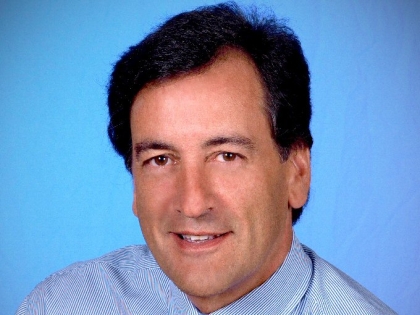
Senator Fuschillo Announces Signing of Legislation to Strengthen Leandra’s Law
Charles J. Fuschillo Jr.
July 26, 2013
-
ISSUE:
- Drunk Driving
Senator Charles J. Fuschillo, Jr. (R-Merrick) announced today that legislation he sponsored to strengthen Leandra’s Law has been signed into law by Governor Andrew Cuomo.
The new law will ensure that more convicted drunk drivers use ignition interlocks as required by law. It will also make it more difficult for drivers to claim they will not operate a car and enhance penalties for individuals who try to escape the law through fraud.
“Every time a drunk driver gets behind the wheel, they put innocent people at risk. Leandra’s Law has been tremendously beneficial in the fight against drunk driving, but it needs to be strengthened to ensure that more DWI offenders use ignition interlocks. That’s exactly what this new law does. I thank Governor Cuomo for signing this important legislation which will help make our roads safer for everyone,” said Senator Fuschillo, Chairman of the Senate’s Transportation Committee and a sponsor of Leandra’s Law.
Nassau County District Attorney Kathleen Rice, who worked closely with Senator Fuschillo in drafting the legislation, said “Strengthening Leandra’s Law closes the loopholes that allowed dangerous drunk drivers to avoid life-saving ignition interlocks and creates safer roads for everyone as a result. I thank Senator Fuschillo for being a leader in the fight against drunk driving and Governor Cuomo for signing this essential legislation into law.”
Leandra’s Law was passed in 2009 following the tragic death of 11 year old Leandra Rosado, who was killed while riding in a car driven by her friend’s intoxicated mother. As part of Leandra’s Law, all convicted DWI offenders must install and use an ignition interlock in all vehicles they own or operate for a period of at least six months after their DWI conviction. Ignition interlocks are breath test devices linked to a vehicle’s ignition system which prevent the car from starting if alcohol is detected in the driver’s breath.
However, many drunk drivers try to avoid the ignition interlock requirement by claiming they do not own or operate a vehicle, waiting for the interlock period to run out, and then reapplying for a license without ever having to use the interlock. Some of these drivers temporarily transfer ownership of the car to a relative or friend, who then allows that person to drive it without an interlock. According to the most recent statistics from the New York State Department of Criminal Justice Services, more than 70 percent of the over 45,000 DWI offenders statewide required to install an ignition interlock in their vehicles have failed to do so.
Leandra’s father, Lenny, who worked closely with Senator Fuschillo to get the law passed, said “Just as they did when they first passed Leandra’s Law, New York State’s elected representatives worked together to protect innocent people from dangerous drunk drivers. Passing this law reinforces the message that drunk driving destroys lives and will not be tolerated in New York State. I thank Senator Fuschillo and everyone who worked so hard with him to get this law passed.”
The new law will raise the minimum amount of time drivers who do not install an ignition interlock must wait to have their driver’s licenses restored from six months to one year. If an offender installs an interlock, a judge will have the authority to remove the interlock restriction after 6 months if the offender demonstrates that they have installed and maintained the interlock during that time period. Making offenders eligible to have their licenses restored sooner for installing the interlock creates a greater incentive for them to use the devices.
Additionally, offenders attempting to avoid the interlock requirement by claiming not to own a motor vehicle will have to assert to the court, under oath, that they are not a vehicle owner and will not drive during the period of interlock restriction. Offenders who lie under oath that they will not operate a vehicle and do not own a car will be potentially subject to additional charges.
The new law also corrects an inequity which allows individuals who drive drunk with a conditional license to face significantly lesser penalties than those who drive drunk with a suspended or revoked license. Conditional licenses allow eligible DWI offenders to drive in certain circumstances, such as going to work, doctors appointments, or to DWI programs. However, the penalty for DWI with a conditional license is only a traffic infraction, while DWI with a suspended or revoked license is a class E felony.
The law will also raise the penalty for DWI with a conditional license to a class E felony, punishable by a prison sentence of up to four years. This will create consistency with the existing penalties for DUI with a suspended or revoked license.
"MADD thanks Senator Fuschillo for his commitment to eliminate drunk driving and for protecting the public," said MADD National President Jan Withers. "The legislation demonstrates that New York takes drunk driving seriously and will hold offenders accountable for their careless actions."
The law takes effect November 1st.


